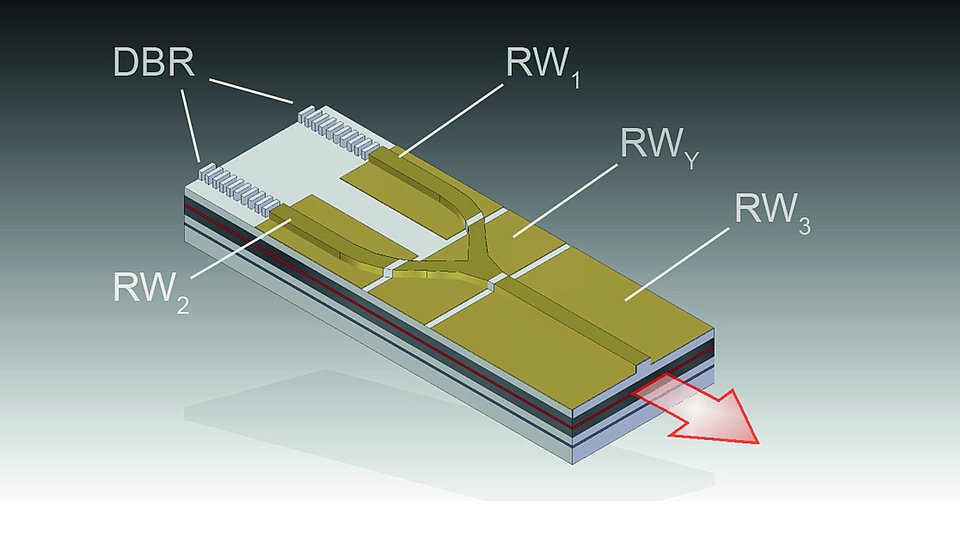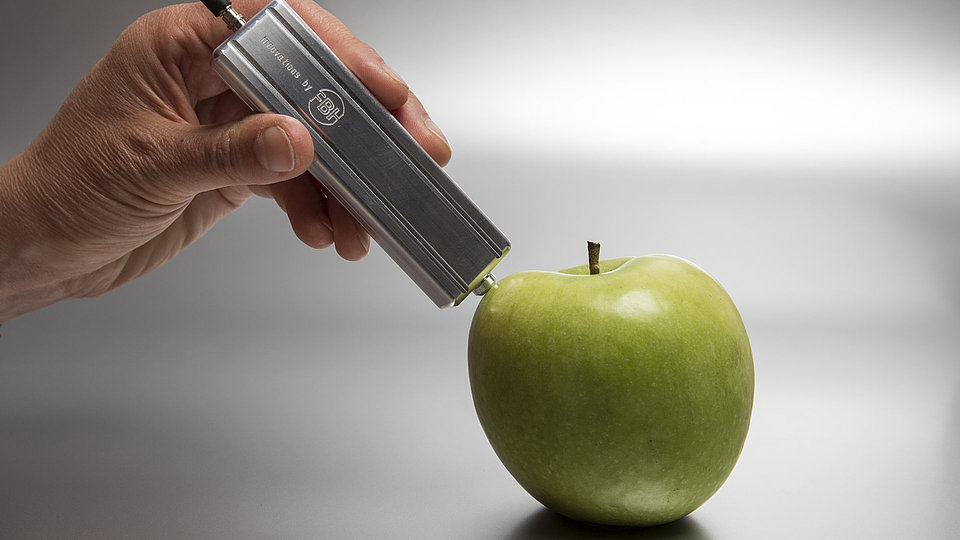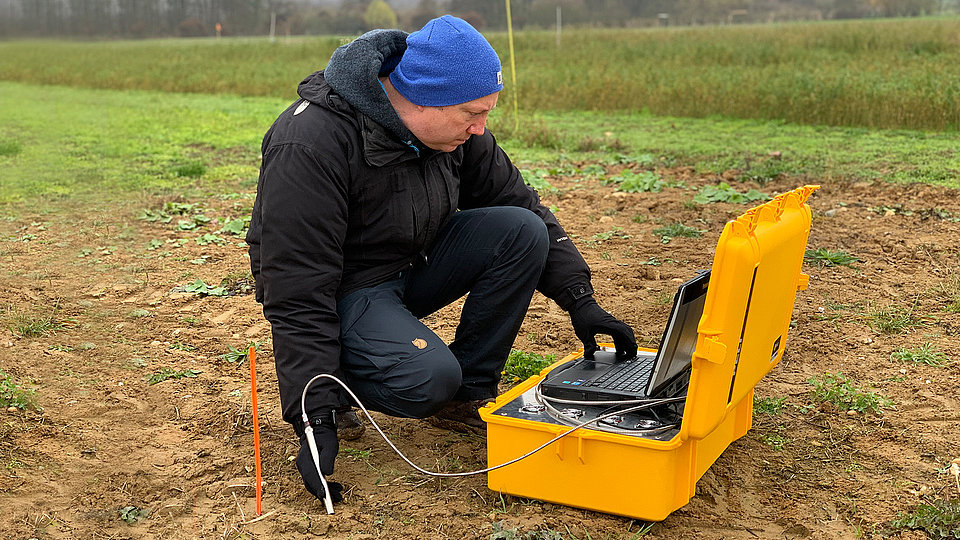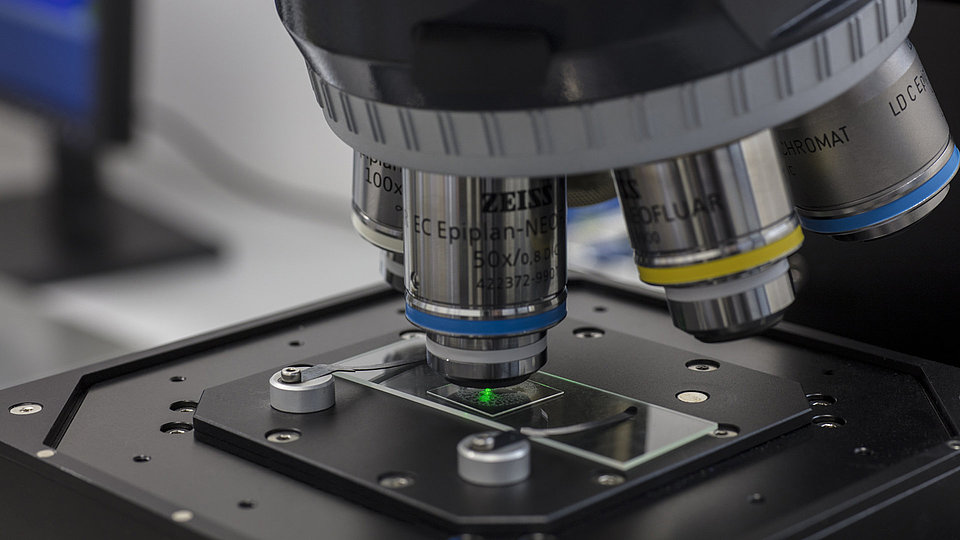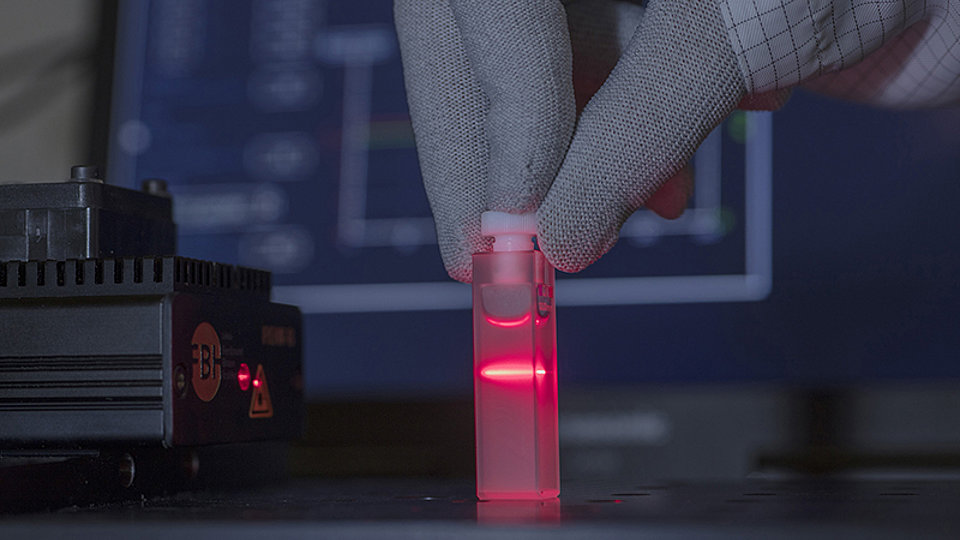Components, Modules & Systems for Sensors & Spectroscopy
We develop diode lasers that serve the special requirements of light sources in the field of sensor technology and analytics. They are specifically tailored to applications in laser spectroscopy. These include tunable light sources for absorption spectroscopy and dual-wavelength diode lasers for applications in Raman and Shifted Excitation Raman Difference Spectroscopy (SERDS) or THz spectroscopy. The work in the Laser Sensors Lab covers the entire value chain from the diode laser to the light source to the measurement system.
For the qualification of the developments directly in the application, various Raman measuring stations and a Raman microscope are available. Jointly with our Prototype Engineering Lab we also realize portable Raman measuring sysstems for on-site measurements. This interaction allows conclusions and thus even more targeted further developments of the lasers and systems regarding the applications and for our partners.
In addition, in the Laser Modules Lab we develop customized miniaturized light sources for both STED and time-resolved fluorescence spectroscopy as well as modules for the mid-IR range for quantum OCT or spectral quantum light microscopy.
Turnkey system for Raman spectroscopy
Based on our dual-wavelength diode lasers, our Prototype Engineering Lab has developed a turnkey control system. It allows in situ measurements of Raman signals even outside of the laboratory. The system unites laser chip technology, optimized cooling and a flexibele control unit in a compact housing. Combined with a Raman spectrometer and FBH’s measurement software, Raman signals can be measured based on the SERDS method.
FLEMUSA - FLExible Spectrally Controllable Radiation Sources for MUltimodal Spectroscopic Analysis
Our work in the field of laser development for spectroscopy is currently being applied in the project FLEMUSA. Here, novel dual-wavelength lasers based on multimode interference (MMI) couplers at 785 nm and 830 nm are to be developed. With electrically adjustable wavelength spacings via heaters, the lasers can be used in both Raman and THz spectroscopy. In this way, soot particles and exhaust gases, among other things, are to be investigated spectroscopically within the scope of the project.
Sim-QPla - Spectral Infrared Microscopy with Quantum Light for Mobile Microplastic Analysis
As part of the Enabling Technologies for Quantum Technologies grant, FBH's Laser Modules Lab is involved in the Sim-QPla project to develop a miniaturized ultra-bright quantum light source pumped around 720 nm using a novel laser diode. This quantum light source, together with the technologies to be developed by the collaborative partners, will lead to fast, robust, and cost-effective measurements using mid-infrared (MIR) spectral microscopy, which is being established for use in mobile and automated microplastic identification in environmental analysis.
